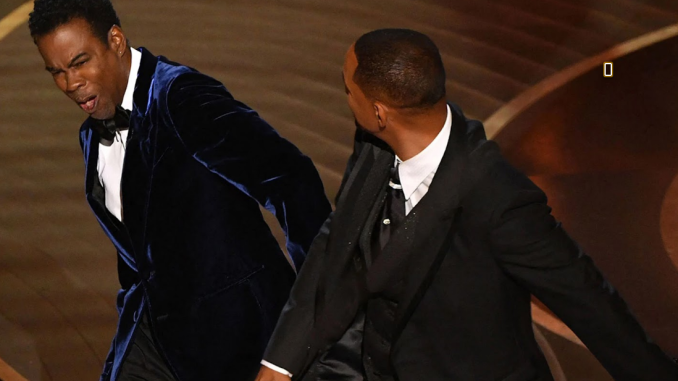
By Priscilla Mensah
By now there have been upwards of thousands of think pieces written about the Will Smith and Chris Rock fiasco. Instead of frivolously adding to the pile of mind-numbing articles, I want to use this space to share my opinion about how to navigate, and perhaps more importantly, learn from breaking news, such as this, as it unfolds.
As I was inundated, as you probably were as well, with the first wave of videos, memes, and social media posts surrounding the incident, I formed an initial opinion that I deliberately made flexible for if, and when, I learned more information. While this event has already been deeply conversed, I still find value in, if only briefly, breaking it down with the hopes that healthy ways of intaking media can be learned in the process.
If nothing else good comes of the slap that Will Smith landed on Chris Rock last Sunday, we should at least learn some valuable life lessons which can be applied to our lives. Among such lessons to be learned include recognizing the various forms that violence is now understood to be possible of engendering.
Many who sided, at least initially, with Will Smith were quick to point out the violence of Chris Rock’s words. This acknowledgement of the ability of violence to take forms other than our traditional understanding of it, has important implications for us going forward.
For one, it, quite importantly, sends the message that words too can be destructive, and because of this, we should be careful with how we choose our words. This is a good message to get across because people often attempt to weaponize words in ways that do more harm than some forms of “actual,” physical violence. Worded insults have habitually been a way to circumvent the normative and perhaps expected punishment that comes along with committing violent acts.
Though the consensus seems to be that Will Smith was in the wrong, if those who, at least in the beginning, supported Will Smith are on to something, it should serve as a reminder that words have the power to inflict real pain to those on the receiving end of them.
Also, you might have been like me, and at first sided with Smith, while understanding Rock’s perspective. In other words, you may have been torn. The reason why I was initially torn in my opinion was because – as I previously touched on in the beginning of this piece – I did not know all the facts. I came to an opinion, with the understanding that it might change once I have more information. This initial opinion was based primarily on hearing that Rock insulted Smith’s wife, Jada Pinkett Smith, and her medical condition that is alopecia.
Almost immediately, I sided with perspectives which contended that Rock’s words were violent. It was only after I saw for myself – and not merely relying on recaps of the event that lacked actual footage – did I change my tune about the violent nature of Rock’s words, noticing that Rock prefaced his joke by first saying “Jada, I love you….” coupled with a lighthearted tone.
Nonetheless, it is clear, even with some people no longer classifying Rock’s words as violent after given proper context, that there has been a renewed interest and understanding of the ways in which words too can be violent. Such renewed public intrigue and broadened comprehension will likely remain with us for years to come. Going forward, we all need to be mindful of the ways in which our words, whether intentional or not, can be just as harmful as physical and more traditionally understood forms of violence.
